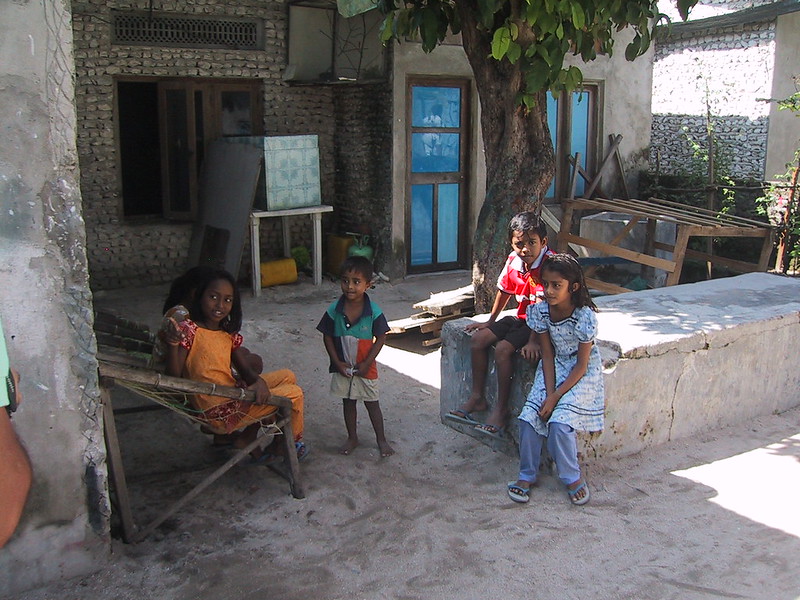Multidimensional Poverty in the Maldives
 In Maldives, 0.8% of the population lives in poverty and 4.8% are at risk. These stats might suggest that poverty is not a major issue in the country. However, these percentages translate into thousands or even millions of individuals, significantly altering the perceived scale and impact of poverty. The multidimensional poverty index (MPI) reveals that poverty in the country is more complex and widespread than traditional measures suggest, indicating that monetary sufficiency does not equate to a lack of suffering. A broader understanding underscores that multidimensional poverty in the Maldives remains a significant concern.
In Maldives, 0.8% of the population lives in poverty and 4.8% are at risk. These stats might suggest that poverty is not a major issue in the country. However, these percentages translate into thousands or even millions of individuals, significantly altering the perceived scale and impact of poverty. The multidimensional poverty index (MPI) reveals that poverty in the country is more complex and widespread than traditional measures suggest, indicating that monetary sufficiency does not equate to a lack of suffering. A broader understanding underscores that multidimensional poverty in the Maldives remains a significant concern.
Broadening Poverty Measures
A 2020 United Nations International Children’s Emergency Fund (UNICEF) report revealed that 28% of people in the Maldives are considered multidimensionally poor, meaning three out of 10 people are affected. This indicates significant deprivations beyond mere income. Multidimensional poverty encompasses those who exceed the monetary poverty threshold but lack access to essential services, thereby impacting their overall quality of life. A broader measure of poverty considers various factors, such as health, education and living standards. It offers a more comprehensive understanding of individuals’ challenges in achieving a decent standard of living.
The Invisible Struggles Beyond Income
Studies show that individuals can face significant quality-of-life challenges without being in traditional poverty. Monetary sufficiency does not shield individuals from barriers in areas often overlooked, such as mental and dental health coverage, internet access and more. These factors broaden the understanding of what constitutes deprivation, beyond just financial constraints, impacting a person’s overall well-being.
The lack of public visibility for Multidimensional Poverty Index (MPI) data may contribute to an inflated perception of living standards, thereby lessening the urgency for policy intervention. Acknowledging a country’s MPI appears to be necessary, particularly in regions like the Maldives where the poverty rate is potentially misleading. Without acknowledging multidimensional poverty, the complexities of deprivation remain unaddressed, fostering an inaccurate perception of well-being. In addition, the oversight could hinder the necessary push for comprehensive policy solutions, essential for addressing the nuances of poverty not captured by traditional metrics.
Advancing Poverty Reduction Strategies in Maldives
Maldives has shown considerable progress in addressing poverty by adopting innovative strategies that other nations could emulate. A pivotal moment came in 2020 when President Ibrahim Mohamed Solih implemented the MPI for policy formulation, marking a departure from traditional resource allocation methods. The government’s commitment, supported by insights from the Oxford Poverty and Human Development Initiative (OPHI) and UNICEF, has been key to these advancements.
Enhancing Digital and Mental Health Access
The country’s crucial need for stable internet access, highlighted by the COVID-19 pandemic is proof of multidimensional poverty. With its expansive archipelago, maintaining internet connections for basic needs is vital. Efforts to address this aspect of multidimensional poverty have been propelled by nongovernmental initiatives like Ookla for Good, which advocates for reliable global internet access, and underlines the importance of digital connectivity in contemporary society.
Furthermore, the perception that mental health care is as essential as access to clean water and food is not yet widespread in the Maldives. Multidimensional poverty extends beyond traditional health care needs to include mental health, which often goes unaddressed. To recognize the additional stress poverty places on individuals who need extra care, the Maldives Health Ministry and the World Health Organization (WHO) implement initiatives to advocate for mental health rights. Its ongoing initiative, Central and Regional Mental Health Services and Development Plan aims for completion by 2025 and seeks to meet the crucial needs of mental health patients.
Looking Ahead
As efforts to tackle multidimensional poverty in the Maldives continue to evolve, the nation stands at a pivotal juncture, embracing a holistic approach to eradicating deprivations that extend far beyond mere financial constraints. By addressing the nuanced challenges of multidimensional poverty, from access to health care and education to digital connectivity, the Maldives sets a promising precedent for integrated poverty alleviation strategies. In addition, with sustained commitment from both governmental and nongovernmental sectors, the Maldives is poised to make significant strides in enhancing the well-being of its residents, ensuring that progress encompasses all dimensions of poverty.
– Antonio Muhs
Antonio is located in Springfield, OR, USA and focuses on World News for The Borgen Project
Photo: Flickr
